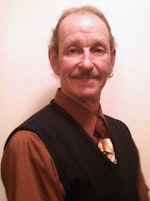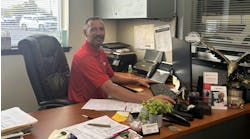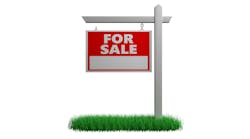Lean production, alliance with other shops enriches shop's bottom line
Born of associating in a 20 Group and following similar cooperative strategies, John R. Magowan and his Ernie's Auto Body are a founding member of the Key Choice Collision Center network consisting of 15 shops throughout the Upper Midwest. Negotiations are under way to add three more members.
"When noncompeting business owners become trusted friends, there's a tremendous amount of valuable exchange," Magowan says. "We've taken the 20 Group concept and grown it further. As new members are solicited, we get them excited about their business again."
Having joined a 20 Group in 1997, Magowan valued the camaraderie and shared advice, yet he and several of his fellow group mates began to tire of a revolving door among participants.
"Too much time was spent bringing others up to speed," he says.
Informal discussions evolved into the official establishment of Key Choice's mission statement in 2004, and throughout a five-year period, members doubled their sales and growth. Magowan cites the efficiencies gleaned by a collection of mid-sized shops serving rural, relatively small markets.
"Group purchasing is only the first step to improving profit by cost reduction; dollars saved through better purchasing flow straight to the bottom line," Magowan says, describing the organization as a group of exceptional shop owners and managers pursuing the latest knowledge, advanced analytical tools and the advantages of group participation with a key focus on innovation.
"A few of us have studied the lean format and made many changes within our shops," he says. "I have a quote I've used for years, and I use it when training about lean processes: 'If a shop or a person says they're lean, they're far from it. You'll never be 100 percent lean. It's about constant, continual improvement.'"
Although the shops are all a bit different, they pursue commonalities by collaborating on identifying best practices and putting them into action – 85 percent of the processes are standardized.
"Through discussions, I can solve problems without reinventing the wheel," Magowan says.
Estimating, office procedures and shop floor techniques are fine-tuned continually, resulting in better CSI (customer satisfaction index) scores and maximum appeal to vehicle owners and insurers.
"We've proven cycle times can be reduced and quality improved at the same time," Magowan says.
Reducing excess waste and pursuing group purchases have proven to be effective tactics.
"Avoiding waste contributes to profits and doesn't cost anyone, and dollars saved through better purchasing flow to the bottom line," Magowan says.
Using a uniform line of paint products, for example, is enhanced by ongoing education from a specific trainer.
"They even use the same spray settings on their guns," Magowan says. "It's not the flavor of the day because a new, clear coat came out."
(The prospect of converting to waterborne paint is on hold pending adoption of national pollution regulations.)
The shops have even shared staffers in times of need, such as when severe hail storms exert extra pressure – while presenting time-sensitive opportunities – on fellow members. Work can become available within the following three-month period, providing on-scene repairers can marshal adequate resources.
"The critical time is the first five days because whoever can write the lion's share of the business will get the extra business," Magowan says.
Key Choice members willingly put in overtime to help leverage these types of scenarios. Because all the shops work hard to write as much business as possible, each one is well-positioned to glean an accelerated pace of the available accounts.
"This doesn't happen often, but we can all recall thinking, 'This is one of those rare times when, if I only had another writer, I could line up a whole lot more than my normal share of this extra business,'" Magowan says.
Recently, one member packed four days worth of clothing, jumped into his private aircraft, picked up a second member, flew to the city of the third member, who was in the heart of the hail-damage area, and the two of them did nothing but write business from dawn until dusk for four days.
A cooperative process featuring financial analyses among the membership begins by measuring a shop's performance versus national and group averages. The individual goals are based on each shop's particular circumstances and opportunities.
Priorities are aligned by focusing on KPIs (key profit indicators) and related management practices, which provide stability while sustaining a pronounced pattern of long-term profitability.
"Some of us have expanded our businesses greatly since we started this process," Magowan says.
Personal growth is another positive attribute that evolves from cultivating noncompetitive friendships with collision industry colleagues.
"Our closing ratio and sales are very good," says Magowan, citing the inherent challenges that come with doing business in Hayward, Wis., which has a population of 1,800.
Living in an rural area, a 50- to 75-mile marketing range encompasses 12 ZIP codes and can assist in drawing business from the far-flung residents along with tapping the market's tourist trade. In addition to an array of golf courses, the historic Hayward region has hundreds of lakes for fishing and water sports, plus miles of trails for snowmobiles, ATVs, cross-country skiing and bicycling.
"It can be a challenge when the tourist volume is low," Magowan says, referring to a paucity of qualified job applicants. "I've hired technicians from as far as 600 miles away."
Magowan works the marketplace by advertising in weekly newspapers and airing radio and television spots. He belongs to several collision industry associations and civic organizations, along with sitting on the advisory committee of Wisconsin Indianhead Technical College in Rice Lake.
"My sales are driven by the market availability," he says. "The volume is only going to grow with the economy because I've peaked in size for this market. I've focused on streamlining processes and continual net-profit improvement. If you can't grow sales, you have to focus on net improvement, or it'll shrink because of inflation."
Magowan markets to insurers, agents, dealerships and the general public. The shop also has become a Hertz car-rental location to attract door traffic. It also has a complete line of truck accessories along with sprayed bed liners.
Ernie's solicits fleet accounts and holds 16 direct repair program (DRP) affiliations. More than 65 percent of the shop's volume is DRP-based. Quality repairs, high CSI scores and low cycle times are key selling points.
"When I purchased the company, there were no DRPs, and a third of the shop's volume was dependent on one insurance company," Magowan says. "Eventually, the larger companies came on board, and we've been successful in maintaining those relationships."
The DRP relationships are important for Ernie's because of the convenience factor for its customers. Many aren't from the area, and it helps the shop provide a better experience when they're directed to the shop. Aside from wrecks involving summer visitors, it can get as cold as 40 degrees below zero in January, leading to cracked bumpers and deer hits.
Ernie's was established in the mid-1970s by Ernie Preston. Because of health issues, Preston put the shop up for sale in the early '90s. Magowan had been working at his brother's collision repair center in Ohio since high school. When his parents bought a retirement home along the shore of one of Hayward's crystal-clear lakes, Magowan moved north with the intention of buying the company, closing the deal on Thanksgiving Day in 1995 at the age of 25.
The staff of five employees, who had been working on full commission, began to expand under Magowan's entrepreneurship and constant quest for improvement. The shop has gone through two additions since Magowan took over. In 1996, a downdraft paint booth was installed, boosting the square footage by 2,500 square feet. And a new building was constructed over the existing structure in 2003 and 2004. During that period, a local competitor's shop was purchased, capturing 60 percent to 70 percent of the operation's sales. By 2004, Ernie's annual sales reached $2.2 million, an increase from $1.3 million in the previous year.
"I'm always interested in personal and business growth," Magowan says.




